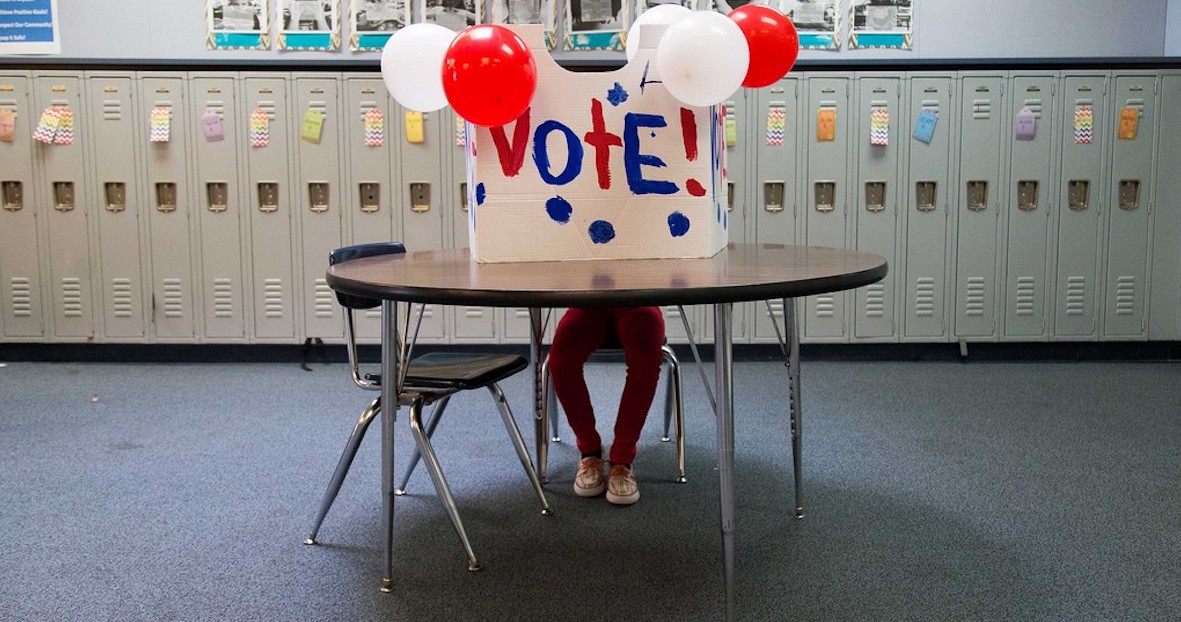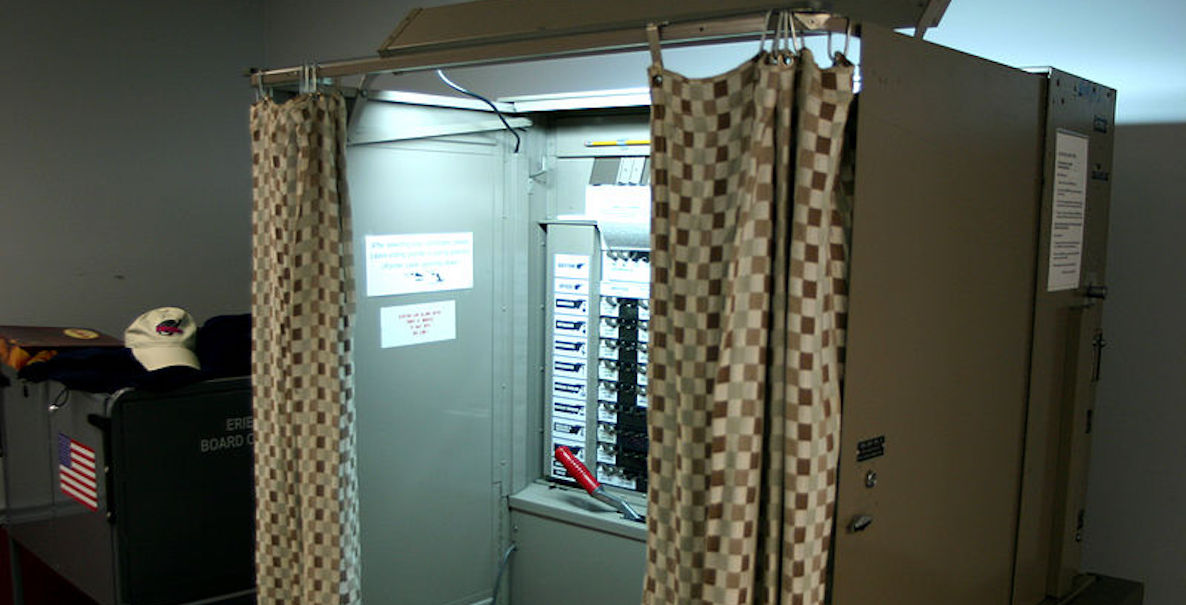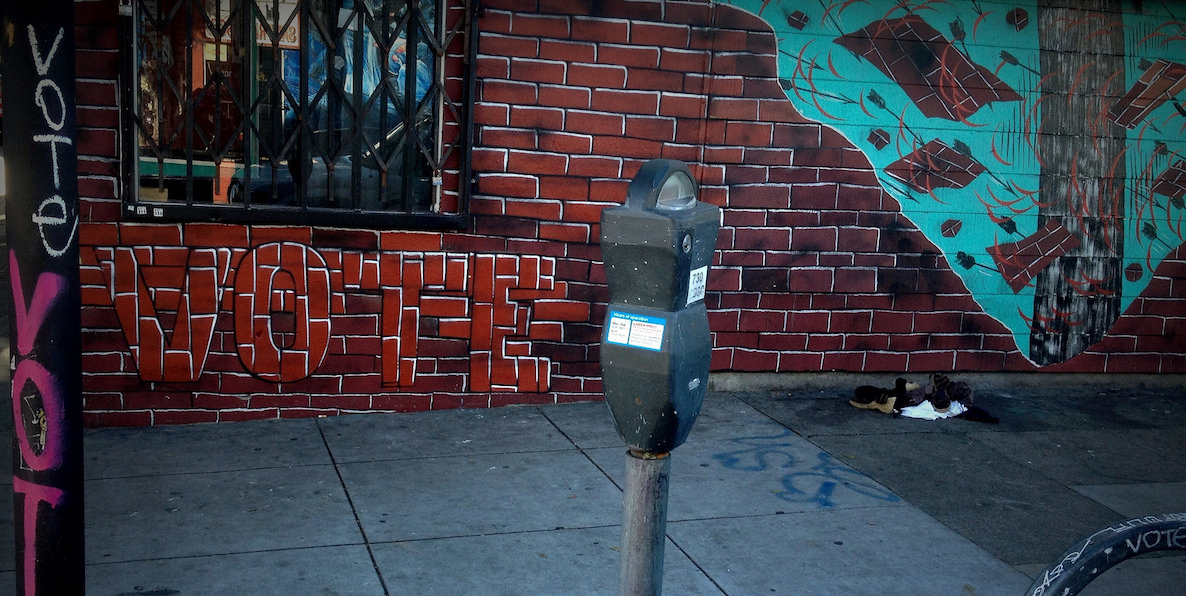May 15, 2018 is a Primary Election, meaning Philly voters will select candidates from the Democratic and Republican parties to face off in the November general election. Last year we gave some background on the progressive roots of primaries, and the different types of primary systems that have emerged since then.
Can I get the short version?
Sure, here you go:
- PA runs a “closed primary.” That means only registered Republicans and Democrats can vote to select their party’s contender for the November election.
- This year, in addition to nominating candidates for public office, the primary also gives registered Ds and Rs the opportunity to elect their party representatives at the state and city level. More on these committee people below.
- If you are registered Independent or with a third party, but live in the the city, you can still vote on three ballot questions.
When are the polls open?
Polls are open from 7am to 8pm. Remember that you can get in line to vote before 7am, and you can vote as long as you were in line before 8pm, even if you don’t get into the actual voting booth until later. Also remember: Polling places change, so make sure you know where to go by checking with the state.
Why should I vote in this election?
-
- Because party politics starts with committeepeople. In many neighborhoods, committeepeople are active twice a year. You can find them standing outside polling locations to welcome voters with sample ballots listing their given party’s official nominees. However, there are at least five “open Wards” that buck this top-down structure, encouraging their committeepeople to engage their neighbors, meet candidates, and weigh in on party nominations. For those interested in more open, transparent party politics, it starts with these ground-level elections.
- The US House race in the newly drawn Fifth District is packed, which means every vote counts. The new Fifth District has become a free-for-all on the Democrat side, with six women and five men competing for the nomination. While the district largely covers Delaware County, if you live south of West Passyunk, or south of the east side of Snyder, your vote is in high demand.
- The ballot questions are small snapshot of major issues in 2018. You get to weigh in on City Charter changes regarding consistent funding for the Police Advisory Commission, local control for the School Board, and mandatory sexual harassment training for all City officers and employees. The measures present a small snapshot of the national scene, through the lens of city government. Plus, all three are surprisingly straightforward as Charter changes go.
Why should I care about committeepeople?
You’ve probably heard of the Republican and Democratic National Committees, and if you remember life before Trump, you’ll recall that Philly hosted the DNC’s main event in 2016. Both parties also have state and local entities. Every four years, registered party members can elect representatives to these lower governing bodies, which hold nominating conventions, and collect and deploy resources to their candidates. At the state level, they also set the party platform.
Report voting irregularitiesHave a problem at the polls?
The Democratic and Republican city committees are each divided into 66 wards, with those cut into small divisions consisting of just a few blocks. There are two committeeperson seats per division, meaning each party has 3,372 seats up for grabs. That’s a few too many to run the city committee — or, for that matter, to decide on a place to eat lunch — so one of their first responsibilities is to elect their ward leaders during June reorganization meetings. That decision can make the difference between the open and closed wards mentioned above.
Perhaps owing to the sheer volume of positions, gender parity is not a requirement at the city committee level. In fact, while some divisions will see a race for their two seats, many will only have two uncontested candidates on the ballot. Others still will have just one, or none at all. In these cases, Ward leaders get to appoint someone. That is, unless you take a few hours, knock on your neighbors’ doors, and run a last-minute write-in campaign, as I did in 2014 when I realized there was an open position. I won with six votes. (In 2016 I moved to a new neighborhood and had to relinquish my position.)
To check your division and see who’s running in your area, visit the Committee of 70.
I heard something about a new map. Which races are affected?
Just the US Congressional primary. In January, the PA Supreme Court threw out the Congressional map that state elected officials had created in 2011. The court determined that the PA General Assembly had violated the state constitution by splitting and combining counties and municipalities to create a Republican advantage. The new map, adopted in February of this year, splits fewer counties and municipalities, and is expected to result in a greater number of competitive races in the November election.
All caught up? Great. Here’s an overview of what you’ll see on your ballot and what it means:
Governor (Statewide)
Tom Wolf is the Democratic incumbent in this race. As Pennsylvania’s executive leader and commander-in-chief, he has the power to veto or approve state laws coming out of the General Assembly, both houses of which are currently controlled by Republicans.
On the Republican side, it’s a three-way race for the pleasure of trying to unseat the incumbent in November: Jones Day partner Laura Ellsworth, former paratrooper and McKinsey consultant Paul Mango, and State Senator Scott Wagner.
Lt. Governor (Statewide)
The Lieutenant Governor is a bit like the vice president of the state, except that the role is directly and independently elected by popular vote. The Lt. Governor presides over the Senate, and otherwise the duties are “as assigned” by the governor. The incumbent, Democrat Mike Stack, has been under an investigation by the state attorney general for mistreatment of his staff and police detail. Through some combination of his alleged behavior, the job’s $163,672 salary, and the free residence, Stack has developed a target on his back in just four years.
Five Democrats are running. Governor Wolf has chosen a policy of not endorsing any of them, including the incumbent, which is telling. Five Republicans are also vying for a chance to take the role in November.
Democrats
Mike Stack, Incumbent
Nina Ahmad, former Kenney aide
Kathi Cozzone, Chester County Commissioner
John Fetterman, Mayor of Braddock
Ray Sosa, Montgomery County banker/insurance broker
Republicans
Jeff Bartos, small businessman and Wagner running mate
Kathleen Coder, Leadership Coach and Organizational Trainer
Peg Luksik, pro-life activist
Diana Irey Vaughan, Washington County commissioner
U.S. House of Representatives (3 Philly Districts)
Like I said above, Philly is home to three redesigned Congressional Districts. There are challengers on the Democrats side in all three races, but the 5th district is a regular battle royale, with 10 contestants vying to compete in the general election. Each district has one Republican candidate running unopposed.
2nd District
Encompassing most of the area North of Race and East of Broad is the new 2nd District. It’s tough to name the incumbent here—on the old map, Dwight Evans, Brendan Boyle, and Bob Brady all previously represented parts of this area. Brady, the senior Congressman, announced he would not seek re-election back in January, before the redraw. Boyle, who is fairly at home in the new 2nd, will be seeking re-election there. He is challenged in the Democratic Primary by first time candidate Michelle Lawrence, recently retired SVP for retail banking at Wells Fargo. David Torres is the lone Republican candidate.
3rd District
Meanwhile, Evans has positioned himself as the Democratic incumbent in the new 3rd District, an incredibly diverse swath which includes the majority of Center City, runs to West Philly, and then stretches across Northwest Philly from Broad to Manayunk. He is challenged by Kevin Johnson, pastor and CEO of job training and workforce development organization Philadelphia Opportunities Industrialization Center. Millennial Bryan Lieb is running unopposed on the Republican side.
5th District
This is where things get crazy. Most of the new 5th covers what had previously been the heavily-gerrymandered, moose-antlered-shaped 7th District, represented by Pat Meehan (R). Now, the 5th is a much more toned blotch that includes the entirety of Delaware County, a sliver of Montgomery County by Lower Merion, and deep South Philly, below West Passyunk and Snyder Avenues. Former Senior Deputy PA Attorney General Pearl Kim is the lone Republican candidate.
Meanwhile, on the Democrats side, it’s a completely different story, with a packed field of 10:
Larry Arata, public school teacher
Margo Davidson, PA State House Representative in District 184 (also running for re-election)
Thaddeus Kirkland, Mayor of Chester and former PA State Representative
Rich Lazer, labor leader from South Philly
Lindy Li, third-time candidate and former financial adviser
Ashley Lunkenheimer, former assistant US Attorney
Mary Gay Scanlon, attorney
Molly Sheehan, bio-engineer
Gregory Vitali, PA State House Representative in District 166 (also running for re-election)
Theresa Wright, Norristown entertainment management entrepreneur
PA Senate (3 even-numbered Districts)
The PA Senate is the upper house of Pennsylvania’s legislative body, and the final stop for bills created in the house. Like the US Senate, it is smaller than the lower house. Unlike the US Senate, which gives each State two seats evenly, State Senators all represent proportional districts. Republicans currently hold a 34-16 majority, which is enough to override a governor’s veto with a two-thirds majority without any help from Democrats.
There are no contested primaries in this election in either party. State Senators are elected to four-year terms with odd and even districts rotating election every four years. This is an even districts year, so voters in odd districts will not see this option on their ballots.
PA House of Representatives (26 Districts)
State Representatives are all elected on even numbered years to two-year terms. Some voters will see a single uncontested incumbent on the ballot for their district. Such is the case with Jordan Harris in the 186th District, for example, and Brian Sims in Center City’s 182. Democrats in other parts of the city will see very competitive races on their ballots, such as the four-way Primary in South Philly’s 184th, and the five-way race in North Philly’s 181st. Republicans are running in only four of the twenty-six districts, all unopposed.
Whereas US Representatives each serve about 707,000 people, State Reps serve small districts of about 62,500 residents, making them way too small for most media market advertising. The size makes these races much more grassroots, even personal. If you know the candidates in your area, it’s likely through door-knocking, house parties, and community outreach rather than radio and TV.
Party Committeepeople
As mentioned above, these races are hyper-local, and chock full of candidates. Because these are party positions, not public offices, the Digital Ballot Tool will not include your state and city party choices.
Ballot Questions
Remember, you DO NOT need to be registered as a Democrat or Republican to vote on ballot questions. Getting a city charter amendment on the ballot requires a two-thirds vote of City Councilmembers. Once they are on the ballot, it takes just a simple majority (i.e. greater than 50 percent) of “yes” votes by the public for each amendment to become law.
Proposed Charter Change Question #1
Shall The Philadelphia Home Rule Charter be amended to require an appropriation in each annual operating budget of $500,000, or such greater amount as Council decides, to the Police Advisory Commission or any successor body or bodies? Yes / No
This measure would stabilize the budget for the perennially understaffed and underfunded Police Advisory Commission, a citizen watchdog group created by executive order in 1994 under Mayor Ed Rendell. The bill was introduced by Councilman Curtis Jones, Jr. and City Council President Darrell Clarke.
Proposed Charter Change Question #2
Shall the Educational Supplement to the Philadelphia Home Rule Charter be amended to restore local control by confirming the Board of Education’s independent responsibility to administer the School District of Philadelphia, providing for public participation in the Educational Nominating Panel process, revising eligibility requirements, requiring City Council confirmation of School Board appointments, requiring a stated reason for removing a School Board Member and establishing a Parent and Community Advisory Council? Yes / No
In May of 2015, Philadelphia voters were presented with a ballot question asking whether or not the state should abolish the five-member School Reform Commission (SRC) in favor of a locally controlled school board. While the response was overwhelmingly “yes,” the measure was a non-binding resolution with no practical impact. It would take another 18 months before the School Reform Commission would vote to dissolve itself, making way for this ballot measure.
Parts of this Charter Change reinforce existing laws that had been overridden when the state of Pennsylvania wrested control of the school district in 2001, establishing the SRC. The Charter currently requires that the Mayor choose his appointments from lists of names provided to him by the Educational Nominating Panel; and requires the Panel to invite the public to submit to the Panel names of candidates for consideration.
Here are the major changes proposed:
- While the Mayor retains the power to appoint school board members, the amendment requires these appointments must be approved by City Council after a public hearing.
- The Mayor may also dismiss a Board member at any time with 10 days written notice. Under the new law, the Mayor would be required to list specific reasons for the dismissal.
- The amendment would impose specific advertising requirements on the Educational Nominating Panel to ensure the invitation and selection process is well-publicized.
- The amendment would require the Board of Education to establish a Parent and Community Advisory Council, and to meet with the Council at least twice every year to consult on issues relating to educational policy and community engagement in schools.
- It tightens old eligibility language, requiring that Board members must be residents of the City, not just registered to vote in the City.
Proposed Charter Change Question #3
Shall the Philadelphia Home Rule Charter be amended to provide for mandatory training for all City officers and employees regarding sexual harassment in the workplace? Yes / No
While the City does have policies in place regarding sexual harassment, there is no training program to reinforce them with employees and elected officials. If approved, this ballot measure would require all city employees and officials to undergo sexual harassment training at least once every three years. This measure was put forth by Councilwoman Blondell Reynolds Brown, and co-sponsored by Councilwomen Jannie Blackwell, Maria D. Quiñones-Sánchez, Cherelle Parker, Cindy Bass, and Helen Gym. City Controller Rebecca Rhynehart has also expressed her support for the measure.
Header Photo: Flickr (creative commons)








